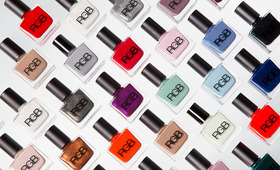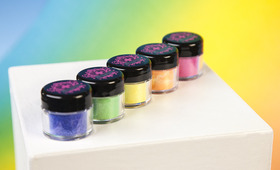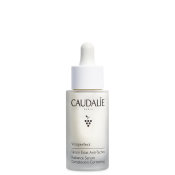
In the world of skincare ingredients, silicones often get a bad rap. A quick Google search will reveal a barrage of negative claims about silicones, including accusations that they’re secretly toxic and they trap dirt, sweat, bacteria, and oil on top of your skin like plastic wrap. But does silicone’s less-than-stellar reputation have any ground in science? Ahead, we separate fact from fiction when it comes to silicones in skincare.
What are silicones?
Silicones (also known as siloxanes) are a type of synthetic polymer made up of chains of silicon and oxygen atoms. Silicones are known for their low toxicity and chemical reactivity, as well as their stability and resistance to bacterial growth, so they’re widely used in everything from electronics and cookware to biomedical devices and children’s toys.
Why are they used in skincare and makeup?
In the beauty world, silicones can be used for a lot of different purposes. Some silicones add a smooth, slippery texture to help products spread on your skin. Others can help seal in moisture and protect your skin from the elements. In makeup primers, silicones fill in pores, smooth skin texture, and help control shine. Some silicones even help to stabilize active ingredients. (Not sure if a product contains silicone? Look for ingredients that end in “cone” or “siloxane,” such as dimethicone and cyclohexasiloxane.)
Are silicones bad for sensitive skin?
Silicones are widely used in the medical field because they’re non-irritating and hypoallergenic—true allergies to silicones are extremely rare. Many bandages and scar treatment sheets are made from silicone, and dimethicone is an FDA-approved skin protectant. While everyone’s skin is different, silicones are known to be some of the safest ingredients for sensitive and reactive skin.
Do silicones cause acne?
Due to their film-forming properties, silicones are sometimes thought of as pore-clogging—but is there any truth to the idea that silicones can trigger breakouts? Though some silicones have occlusive powers, the science says that silicones are actually permeable to air and water—they don’t form some sort of suffocating, impenetrable layer on top of your skin, like you may have heard. Most silicones have a low comedogenicity rating, according to standard tests. In fact, we can’t find any solid research linking silicones to acne. That said, any ingredient can potentially cause acne, depending on how it’s formulated, your skin chemistry, and your cleansing routine—while silicones aren’t likely to cause acne, the answer isn’t black and white.
Our favorite skincare products with silicone
Our favorite silicone-free skincare products
Featured Products
You Might Also Like
-

Holiday 2013
Effortless, Glam Holiday Looks
- 515
-

Tips & Tricks
Video Tutorial: the Charlotte Tilbury look to give you the perfect sexy cat eye
- 288
-

From the Shop
RGB's Gina Carney Wants Us All to Have Sophisticated, Toxin-Free Nails
- 210
-

From the Shop
Tutorial: Sultry, Smokey Eye with Wayne Goss, The Eye Set
- 855
-

From the Shop
Must Try: Neon Glitter Pigments
- 371
-

From the Shop
Classic Kevyn Aucoin Makeup Lesson #4: Shaping Brows
- 728




















